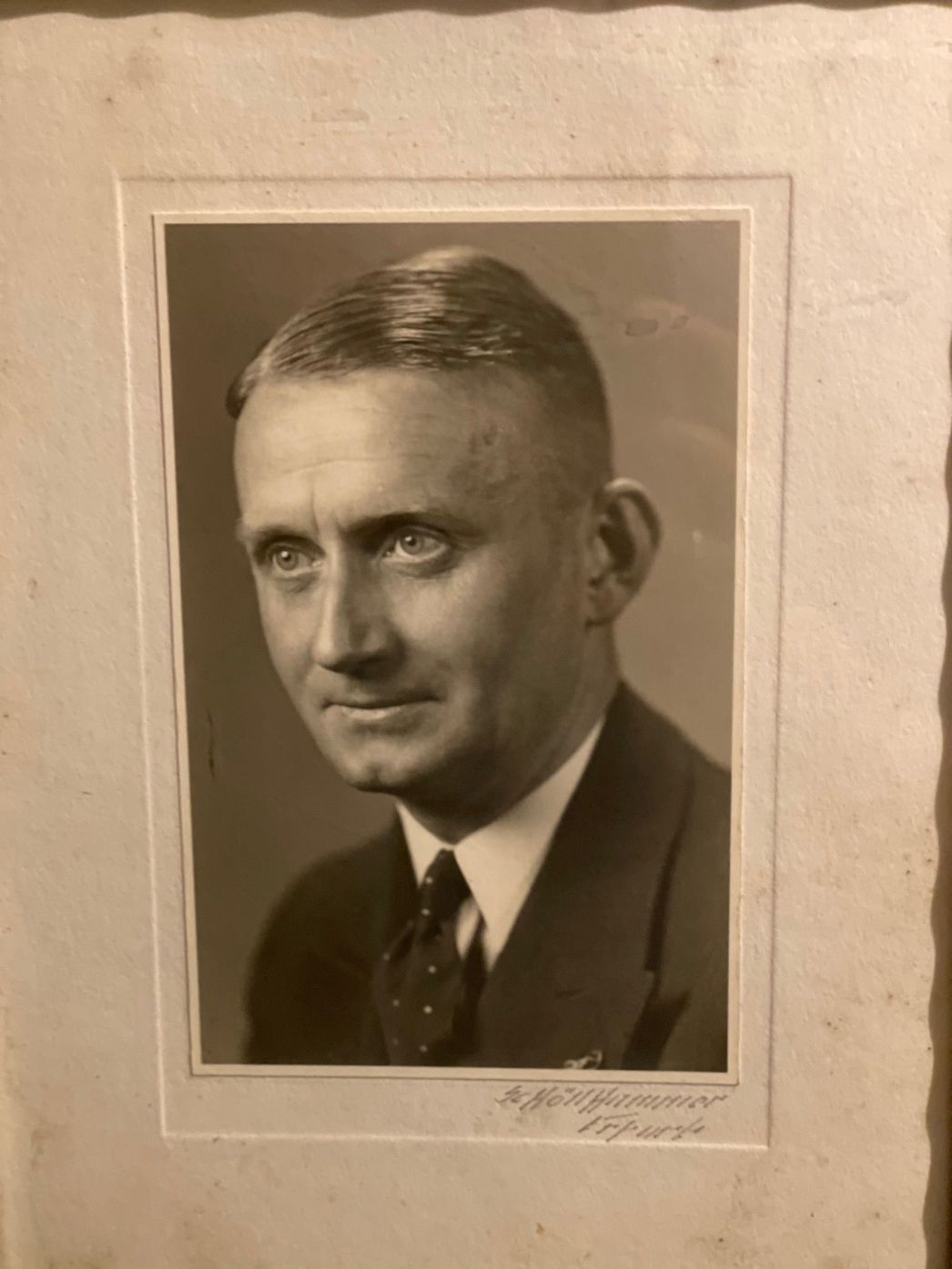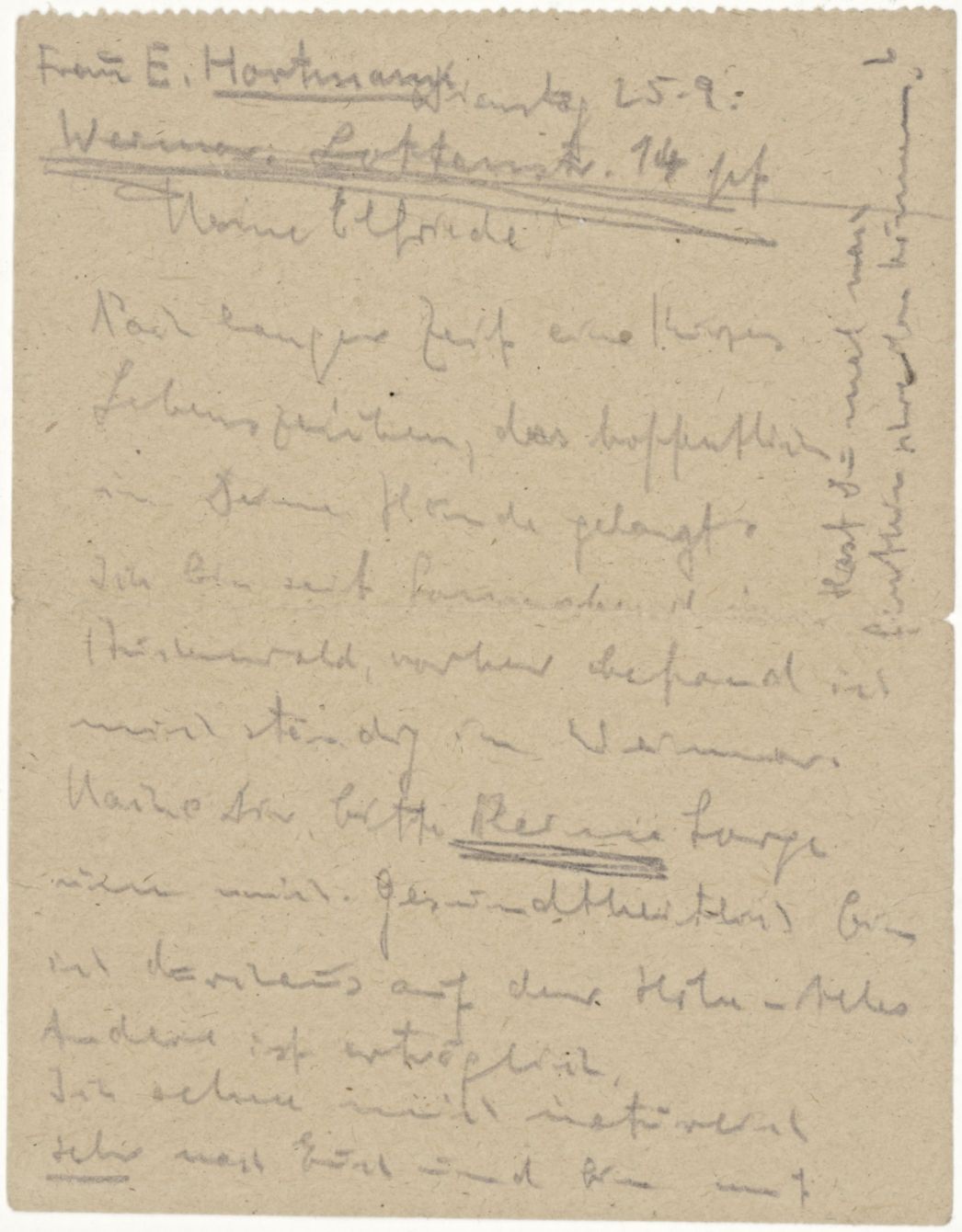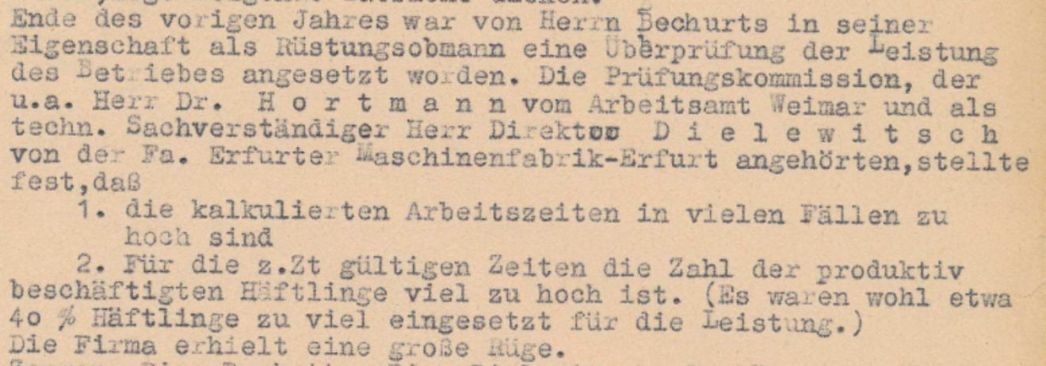Kurt Hortmann was born in Genthin in 1900. After World War I, he studied law in Jena, Freiburg im Breisgau, Innsbruck, and Göttingen. He completed his studies with a doctorate in 1925. From 1928 on, he worked as an assistant consultant at the State Employment Office in Erfurt.
In 1933, Kurt Hortmann became deputy head of the employment office in Arnstadt and subsequently as director of the employment office in Torgau. He joined the NSDAP that same year. From 1937 on, Kurt served as the head of the employment office in Weimar. In this role, he played a central role in organizing forced labour in Weimar during World War II.
In June 1945, the Weimar criminal police questioned him about his role as head of the employment office, but released him shortly afterwards. After the Soviet occupying power took over, the Soviet counterintelligence agency Smersch arrested him again on July 23, 1945. He was sent to the Soviet Special Camp No. 2 in Buchenwald, where he died on May 16, 1948. His wife was not informed of his death. In 1952, she had her husband declared dead.


Transcript:
"My Elfriede!
A brief sign of life after some time, which I hope will reach you. I am with … (?) in Buchenwald; before that, I was in Weimar. Please don't worry about me. I am in good health. Everything else is bearable. Of course, I miss you very much and [my thoughts are constantly with you]."
In September and October 1945, Hortmann was able to secretly send two letters to his wife. Hortmann handed the messages to a civilian tractor driver at the Süßenborn sand pit, where he briefly worked while he was a special camp inmate.

Kurt Hortmann was part of a delegation that inspected the Fritz-Sauckel-Werk, a factory employing forced labourers and concentration camp prisoners, in 1944. According to the delegation’s analysis, the productivity of the concentration camp prisoners was too low.
Felix Kast was also imprisoned in the Buchenwald Special Camp between 1945 and 1950 for his role as the director of the wagon factory at the Gustloff-Werke in Weimar. He was subsequently transferred to Waldheim and received a sentence.

